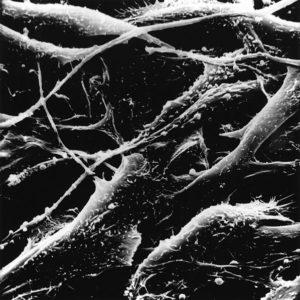Pembrolizumab is an immunotherapy drug used to treat individuals with advanced melanoma. Researchers from University of California, Los Angeles, have found that individuals with JAK1 or JAK2 mutations in their cancerous cells see little to no benefit from taking pembrolizumab. This study could explain why some people respond to immunotherapy while others do not.
Pembrolizumab is a cancer immunotherapy drug for the treatment of melanoma and recently for non-small-cell lung cancer. The drug works by blocking the interaction between PD-1 and PD-L1. PD-1 is a receptor expressed on T cells and pro- B cells, and PD-L1 is its ligand. The function of PD-1 is to regulate immune responses by preventing T-cell activation. This is critical for the immune system to control autoimmunity, however, PD-L1 is highly expressed in cancer cells and therefore aids cancerous cells in evading the immune system.
Blocking of PD-1 has been found to be associated with anti-tumour activity. This anti-tumour activity is attributed to the reactivation of T cells specific to tumour antigens which would have been blocked by the PD-1 interaction with PD-L1. These re-activated T cells can then recognize tumour antigens. The T cells produce interferon gamma through different pathways including the Janus kinases, JAK1 and JAK2. This leads to the expression of interferon-stimulated genes which have anti-tumour effects.
The researchers obtained biopsy samples from participants who had melanoma and colon cancer but did not respond to anti-PD-1 therapy. The researchers also studied the effect of JAK1 and JAK2 mutations in 48 different melanoma cell lines. The researchers found that certain loss-of-function mutations in JAK were associated with resistance to PD-1 blockage in cancer patients. They propose that the mutations in JAK1 and JAK2 were responsible for loss of interferon-gamma signalling and therefore led to the resistance of anti-PD-1 therapies.
Defining which cancer patients would benefit from anti-PD-1 therapies such as pembrolizumab is essential to ensure patients receive the best treatment and do not waste time undergoing treatments that would not be beneficial. This study shows a novel mechanism behind resistance to anti-PD-1 therapies and could inform cancer treatment plans.
Journal article: Shin et al., 2016. Primary Resistance to PD-1 Blockade Mediated by JAK1/2 Mutations. Cancer Discovery
Article by Thandeka Moyo












